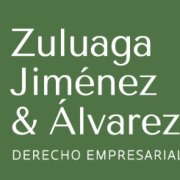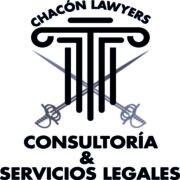Best Water Law Lawyers in Bogota
Share your needs with us, get contacted by law firms.
Free. Takes 2 min.
List of the best lawyers in Bogota, Colombia
About Water Law in Bogota, Colombia
Water Law in Bogota, Colombia is a specialized area of legal practice that covers the regulation, use, management, and protection of water resources. Bogota, as the capital city, faces significant challenges regarding water supply, distribution, pollution control, and protection of water sources due to rapid urban growth and industrial activity. Water Law ensures that these resources are used sustainably and in accordance with national and local regulations, balancing public need, environmental protection, and private rights.
Why You May Need a Lawyer
There are many situations in which a person or business in Bogota may require the assistance of a Water Law lawyer. Some of the most common include:
- Disputes over water rights or access to water sources
- Issues with water pollution or environmental contamination, including penalties or enforcement actions
- Questions about permits and licenses required for water extraction, usage, or infrastructure development
- Compliance with environmental regulations affecting agriculture, industry, or real estate development
- Concerns over public utility water services, such as supply interruptions or billing disputes
- Legal conflicts involving riverbank, wetland, or protected area management
- Representation in administrative or judicial proceedings related to water management or environmental protection
Local Laws Overview
Water regulation in Bogota is shaped by Colombian national laws, specifically Law 9 of 1979 (the Sanitary Code), Law 142 of 1994 (regarding public services), and Law 99 of 1993 (which establishes the Ministry of Environment and Colombian environmental regulations). The city’s water is managed through public-private partnerships and overseen by entities such as Empresa de Acueducto y Alcantarillado de Bogotá (EAAB) and the Regional Autonomous Corporation (CAR).
Key aspects include:
- Water is considered a public resource and its use must comply with permits and environmental licenses
- There are strict regulations against dumping pollutants into watercourses, and fines are imposed for violations
- Water utility services are subject to legal oversight and consumer protection standards
- Special protections exist for wetlands and riverbanks within city limits
- All land development projects must analyze potential impact on water resources and comply with urban planning restrictions
Frequently Asked Questions
Who owns water resources in Bogota, Colombia?
Water resources are owned by the nation, and their use is regulated by public authorities. Individuals or companies need proper authorization to use or benefit from water sources.
Can I use water from a natural stream on my property?
Not without a formal permit. Any use of water from streams, rivers, or wells requires authorization and must not affect public or third-party rights.
How are water utility rates regulated?
Water utility rates are set and supervised by the Comisión de Regulación de Agua Potable y Saneamiento Básico (CRA), following national policies and local factors such as usage level and location.
What happens if my community suspects water contamination?
You can file complaints with the EAAB, the Secretary of Health, or environmental authorities. Investigations will be launched and, if contamination is confirmed, responsible parties may face sanctions.
What permissions do I need to build near a river or wetland?
Special permits and environmental analysis are required. Development near protected water bodies is highly restricted to prevent damage to natural resources.
Can a business be penalized for causing water pollution?
Yes. Businesses can be fined, required to repair damages, or even be suspended if they violate water protection laws.
How does Bogota ensure sustainable water supply?
The city implements management plans, water conservation campaigns, investment in infrastructure, and strict enforcement of environmental laws.
What should I do if I receive a notice of water infraction?
Consult with a Water Law lawyer immediately to review the notification, prepare a defense, and ensure your rights are protected during any administrative or legal process.
Is it possible to appeal decisions made by water authorities?
Yes. Decisions by local or national authorities regarding water use or penalties can often be challenged through administrative appeals or judicial actions.
How do water laws impact property transactions in Bogota?
Any property transaction must consider water rights, pending fines, usage permits, and compliance with local zoning and environmental laws, to avoid future legal issues.
Additional Resources
If you are dealing with a Water Law issue in Bogota, the following resources may be helpful:
- Empresa de Acueducto y Alcantarillado de Bogotá (EAAB) - the city’s main water utility
- Regional Autonomous Corporation of Cundinamarca (CAR) - oversees environmental management including water resources
- Secretary of Environment of Bogotá - handles environmental policies and enforcement in the city
- Comisión de Regulación de Agua Potable y Saneamiento Básico (CRA) - regulatory body for water services
- Local law schools and legal clinics, which sometimes provide free legal orientation
Next Steps
If you need legal assistance regarding Water Law in Bogota, Colombia, here is how you can proceed:
- Gather all relevant documentation related to your case such as permits, contracts, invoices, and any correspondence with authorities.
- Consult with a lawyer specialized in Water Law or Environmental Law who understands both the legal landscape and local administrative procedures.
- Contact relevant authorities if an administrative process is ongoing, to ensure you meet all deadlines and requirements.
- Consider mediation or negotiation for disputes, but be ready to pursue litigation if your rights are being infringed.
- If cost is a concern, look for universities or NGOs that provide pro bono legal aid in environmental matters.
Acting quickly and seeking professional advice will help protect your interests, comply with the law, and resolve water-related legal challenges effectively.
Lawzana helps you find the best lawyers and law firms in Bogota through a curated and pre-screened list of qualified legal professionals. Our platform offers rankings and detailed profiles of attorneys and law firms, allowing you to compare based on practice areas, including Water Law, experience, and client feedback.
Each profile includes a description of the firm's areas of practice, client reviews, team members and partners, year of establishment, spoken languages, office locations, contact information, social media presence, and any published articles or resources. Most firms on our platform speak English and are experienced in both local and international legal matters.
Get a quote from top-rated law firms in Bogota, Colombia — quickly, securely, and without unnecessary hassle.
Disclaimer:
The information provided on this page is for general informational purposes only and does not constitute legal advice. While we strive to ensure the accuracy and relevance of the content, legal information may change over time, and interpretations of the law can vary. You should always consult with a qualified legal professional for advice specific to your situation.
We disclaim all liability for actions taken or not taken based on the content of this page. If you believe any information is incorrect or outdated, please contact us, and we will review and update it where appropriate.













